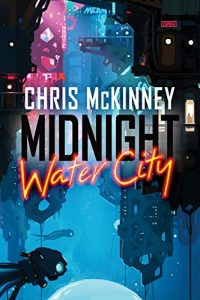Alexandra Pierce Reviews The Best of World SF: Volume 2 by Lavie Tidhar, ed.
 The Best of World SF: Volume 2, Lavie Tidhar, ed. (Head of Zeus 978-1-80328-031-8, £25.00, 656pp, hc) October 2022.
The Best of World SF: Volume 2, Lavie Tidhar, ed. (Head of Zeus 978-1-80328-031-8, £25.00, 656pp, hc) October 2022.
Lavie Tidhar is prolific. His first volume of The Best of World SF came out in 2021 – the same year as his novels The Hood and The Escapement and collection The Lunacy Commission– and now this second volume arrives just a year later (along with two other novels). Not that I’m complaining; access to short science fiction from outside the Anglophone world is something to be celebrated, and Tidhar has collected an excellent range here.
His introduction to volume two sets out Tidhar’s intentions, sets reader expectations, and establishes boundaries for the series. That this is not a traditional ‘best of’; that it is instead a showcase of emerging writers around the world; that no one from the first volume reappears in this one. He also champions the people around the world who helped bring this volume together, providing what should be an excellent reading list for those who want to find more work from outside the American and British scenes.
This anthology contains 29 short stories, representing (by my count) 23 countries. Some were written originally in English, while others are translated – occasionally by the authors themselves, and sometimes by others (translators always get acknowledged by name in Tidhar’s introductions to each piece). Eight are original to this volume, and the remaining 21 are reprints. Africa, Europe, South America, Asia, and the Middle East are all represented. Having said that, this could easily be presented as an anthology of just… science fiction. That is, while all the stories are doing weird and wonderful things, they all felt familiar: they are all, unsurprisingly, recognizable as science fiction (that famously hard-to-define term). In case it’s not obvious, this is absolutely a good thing; I’m sure there’s a multitude of reasons for it, but this collection of stories shows that good genre writing transcends international boundaries. social groupings.
The anthology overall has no theme, except “science fiction.” Within it, Tidhar has occasionally paired stories that go well together, such as two that focus on food, for instance, and two that have fairytale elements. A few times there is a short run of stories with similarities: a set of stories that are a long way from Earth; a set that focus on bots or droids. This thematic clustering works well because within each, there is no repetition (that bane of the themed anthology) – and then the next story is utterly different (AI gods or a generation ship or alt-history). It’s an adventure through the possibilities of science fiction story.
As with any anthology, I had some favorite stories, and while others simply didn’t work for me I could understand how they would work for other readers. A selection of my favorites may give a sense of the breadth of stories in the anthology. One is the opening story, Nadia Afifi’s “The Bahrain Underground Bazaar” – which Tidhar says he built the entire anthology from, and I can see why. A dying old woman visiting the Underground Bazaar to experience other people’s deaths through virtual immersion chambers sounds deeply creepy and morbid. There definitely are elements of discomfort in the story; but Afifi isn’t gratuitous in her descriptions, and it’s an oddly hopeful story in the end (and features Petra, a destination that’s high on my bucket list). Saad Z. Hossain’s “Bring Your Own Spoon” (one of the food-focused stories) has a setting that will be familiar to readers of The Gurkha and the Lord of Tuesday and Kundo Wakes Up, which was enough to make me happy the entire anthology exists. The story itself doesn’t disappoint, as the down-and-out Hanu makes friends with a djinn and others through cooking. Meanwhile, World Fantasy Award-winning Natalia Theodoridou represents Greece with “To Set at Twilight in a Land of Reeds,” one of the volume’s robot-based stories. In it, humans have made robots sentient, hoping it would make them better at their job, but it has mostly made them miserable (which honestly their makers would have foreseen if only they’d considered themselves). Dora, the narrator, visits an old friend/rival/responsibility for the last time, to pass on bad news. In doing so, she is compelled to consider the nature of sentience, and love, and transience; it’s a beautiful piece that still has me thinking.
Tidhar asks “If one book is an accident, is a second one a coincidence?” Not that I wish more work on his plate, but I rather hope that a third book is a pattern.
Alexandra Pierce reads, writes, podcasts, cooks and knits; she’s Australian and a feminist. She was a host of the Hugo Award winning podcast Galactic Suburbia for a decade; her new podcast is all about indie bookshops and is called Paper Defiance. Alex has edited two award-winning non-fiction anthologies, Letters to Tiptree and Luminscent Threads: Connections to Octavia E Butler. She reviews a wide range of books at www.randomalex.net.
This review and more like it in the November 2022 issue of Locus.
 While you are here, please take a moment to support Locus with a one-time or recurring donation. We rely on reader donations to keep the magazine and site going, and would like to keep the site paywall free, but WE NEED YOUR FINANCIAL SUPPORT to continue quality coverage of the science fiction and fantasy field.
While you are here, please take a moment to support Locus with a one-time or recurring donation. We rely on reader donations to keep the magazine and site going, and would like to keep the site paywall free, but WE NEED YOUR FINANCIAL SUPPORT to continue quality coverage of the science fiction and fantasy field.
©Locus Magazine. Copyrighted material may not be republished without permission of LSFF.






I guess given how little world SF is translated in English, it is probably nearly impossible to put together a themed world SF anthology. However, the tendency in the last few years seem to be towards growth, so may be one day we would see that too.
Small point of clarification: these two volumes aren’t Tidhar’s first foray into editing anthologies of world science fiction. In 2015, I discovered Tidhar’s “The Apex Book of World SF” (published in 2009) on an exhibitor’s table at Gen Con. It was the first collection of SF short stories from non-English speaking authors I had ever seen. I snapped it up. Tidhar also edited “The Apex Book of World SF 2” published in 2012. Both are excellent collections and a good way to be introduced to new authors. From my review of the second volume: “The variety in theme, structure and style amongst these stories practically guarantees that any serious reader of any genre will find something to like, not to mention something to ponder, within the covers of this book.”
Thanks to the marvels of the Internet, I see that there are now no less than five volumes in the Apex series, crediting Tidhar as the “series editor.” More great short stories from around the world waiting to be discovered!